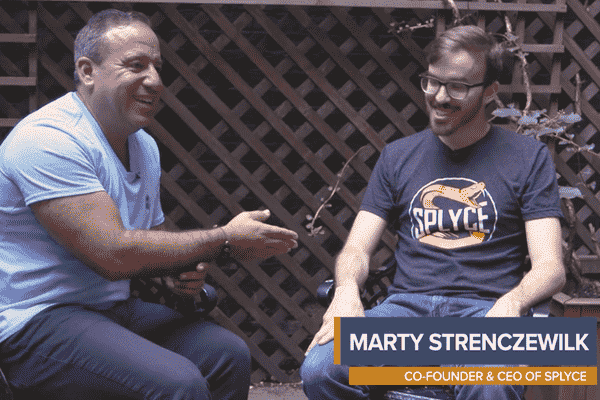Simply Expressing Gratitude Will Help You Build an Empire

If you want employees to perform beyond the contractual obligations of their roles, expressing authentic gratitude must be on your agenda. Despite it being a distinguishing feature between above-average and star players in business, there is much research now illustrating how gratitude expression increases productivity and job satisfaction, lowers stress andreduces absenteeism.
58003
1. Get better at recognizing specific details.
Don’t stop high-fiving or (proverbially) patting your team members on the back for a job well done. However, know your words can lose their potency and meaning if you’re parroting them at every opportunity. Gratitude overkill will desensitize anyone, let alone your staff. Emotionally intelligent employees will also smell a lack of authenticity a mile away. A token thank you can be worse than not receiving one at all.
Watch and observe your people more closely. What specifically do you appreciate about him? What’s special about her contribution that makes things easier, simpler and more enjoyable? Does he have a particular style of communication, a consistently calming influence over his colleagues? Does her natural energetic state vicariously impact others’ work performance? Does his momentum breed momentum, making your life as a leader easier?
Describe what it is you are grateful for. Explain what you appreciate and why. Specific, timely feedback will always go far further. You’re demonstrating you notice them. You notice their inpidual contributions. Stop treating people like commodities you buy at wholesale and sell at retail and watch their responsiveness, effort, altruism and attitude soar above and beyond their job description.
2. Create gratitude activities that will change your workplace in more ways than one.
Empirical research led by Lea Waters of the University of Melbourne in Australia found a positive relationship between gratitude expression and job satisfaction she says business leaders should be capitalizing on. Organizational leaders can boost job satisfaction by creating regular opportunities which prompt grateful emotions.
Waters suggests gratitude activities can catalyze a reciprocal and flow-on effect that organically elevates widespread job satisfaction. Expressing gratitude in team meetings, internal news updates and teaching appreciative conversational-style strategies can lead to a more satisfied workforce that yields lower productivity-related costs.
Ways of expressing gratitude need to be a subtle and consistent feature of every work day. Trying to force yours or anyone else’s expression of gratitude is its undoing. Having regular program-like initiatives mixed in with spontaneous recognition and appreciation activities will regularly inspire your people, showing them you notice and recognize each person’s inpiduality.
Start with considering what you appreciate about your team. Think carefully about what behavior and attitudes you want them to develop long-term. Only rewarding high performance puts you in danger of steering your people into a limited, fixed mindset. Essentially only clapping when the jester dances a jig is amateur leadership.
Do, however, expect resistance. Some team members will roll their eyes at the suggestion of monthly gratitude awards or participating in writing "thank you"postcards to another colleague they can take home with them. Create two or three simple programs, and make it mandatory each inpidual participates in at least one or two of them to introduce the concept of practicing gratitude. Examples might be:
58003Create and educate your team on the process then allow them to run with it. Let them experience the difference for themselves and marvel in the atmospheric shift.
3. Demonstrating gratitude will often speak much louder than words.
If you have not read Gary Chapman’s infamous book The Five Love Languages you’re missing golden nuggets of wisdom that could dissolve emotional turmoil in your personal relationships and your work ones.
Chapman explains how all of us have different ways we feel apt to giving and receiving love. Some of us like to say it and be told we’re loved. Some of us feel love by simply being listened to and being empathized with. For others of us, our souls light up when surprised with a gift or unexpected gesture.
The same can be said for expressing gratitude and taking it into the workplace arena. Four of the languages -- words of affirmation, quality time, acts of service and gift giving -- could be easily woven into activities that start breeding a culture of increased satisfaction and productivitytomorrow. However, you have to know what your peoples’ preferences are.
Give inpiduals personal time. Give thanks in person, not just publicly. Directly inject the energy of your appreciation, recognition and your specific attention. Don’t underestimate the power of that exchange for someone who values being personally thanked far more than receiving a tangible gift.
However, it’s not just about speaking gratitude. It’s about demonstrating it.
For that volunteer who is present and consistently gives their best at every event, would a $300 gift card reflect as much gratitude as a VIp ticket of the same price with backstage passes to their favorite band? It becomes more than gratitude.
Southwest Airlines was recently voted America’s 13th top employer for 2018. 58003 Its flight attendants model a classic example of Water’s reciprocation of gratitude. In fact, they pay it forward to the customers by providing unique in-flight experiences making the airline internationally renowned for its service over the last two decades.
people won’t remember what you said but they will always remember how you made them feel. When you express gratitude in ways that ignite your people’s souls and spirits, you will remember -- they will remember. 每个人都赢了。 So, what are you grateful for?
-
更多并不是更好: 如何有效地针对零售促销活动
2021-07-21 -
找到机会必须采取的4个行动
2021-07-15 -
这个机器人治疗师通过Facebook与患者交谈
2021-07-12 -
3种简单的方法来提高你的精神焦点
2021-07-10 -
阻碍用户列表增长的5种习惯
2021-07-06 -
关于网络仇恨者的可悲事实是,他们只是失败者
2021-07-06 -
5必须了解小企业世界的经验教训
2021-07-04 -
嘿,笨蛋。就在这里。就在你面前!'当我做了一杯肮脏的马提尼酒时,我在生活中的呼唤
2021-07-03 -
每个员工都是企业家!或者可能是。或者应该是。
2021-07-01 -
对于家长企业家来说,一次专注于一件事来停止内疚
2021-06-24 -
这种治愈企业家孤独的方法也解决了拖延症
2021-06-21 -
SXSW: 如何建立一支有效的员工队伍
2021-06-20










